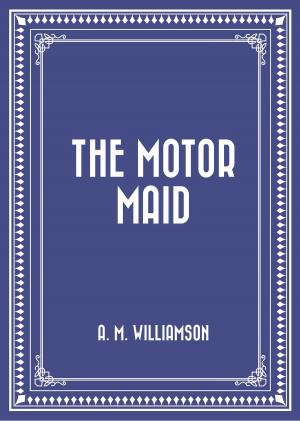| Author: | Jack Nganga | ISBN: | 9781370593996 |
| Publisher: | Jack Nganga | Publication: | March 16, 2018 |
| Imprint: | Smashwords Edition | Language: | English |
| Author: | Jack Nganga |
| ISBN: | 9781370593996 |
| Publisher: | Jack Nganga |
| Publication: | March 16, 2018 |
| Imprint: | Smashwords Edition |
| Language: | English |
The story begins inside the homestead of a disillusioned Kikuyu middle-aged man who has hopelessly lost his long life battle to sire a son-a cultural anomaly that threatens to send him to his grave early and in utter disgrace- only to find a light at the end of the tunnel when in spite of all the odds, he begets a son, but it happens in the most secretive and repulsive manner which will haunt him for the rest of his life.
After he discovers a terrible family secret, a Kikuyu boy runs away from home in 1914 and unexpectedly comes across a British caravan recruiting young black Africans to serve as carriers in World War I. He regrettably abandons family duty and involuntarily becomes absorbed by world affairs that take him further away from home, eventually landing him in the personal service of a retired British captain who becomes an English settler farmer and an alcoholic in colonial Kenya.
The boy becomes a man while in the service of the retired captain and immediately finds himself conflicted between the new western culture whose luxuries he freely enjoys, and the old Kikuyu customs that he is strongly pulled towards, thus becoming obsessed to find his lost kin despite his loyalty to his master.
The main theme of the novel is “Lineage” and the need to keep it going as demanded by the old customs, but whose pro-creativity is often “besieged” by personal problems that at first arise within the settings of a traditional Kikuyu village and subsequently made worse by the appearance of the White man who subjects the Africans to a new religion, culture and government at the dawn of the 20th century.
Other themes in focus include; Love, heartbreak, guilt, addiction, atonement, murder, justice, triumph and defeat -dramatically narrated through situations and incidents which are often a matter of life and death and depicted through the personal stories of members of the same family tree who live in different times and who never cease to become subjects of a struggling British empire, from its heydays at the dawn of the 20th century to its total decline over a hundred years later.
The novel's five main characters struggle with their heredity, clan kinship, inheritance and cultural identity as they commit themselves in bringing forth a new brood to perpetuate the "Lineage", which always demands continuity in strange and mysterious ways that are somewhat still connected to the old beliefs and customs.
Through distinct but chronological individual stories, the reader will appreciate the struggles many Africans faced to maintain their culture and bloodline in an era when the British ruled with an iron fist to save their declining empire.
.
Set in three periods; precolonial, colonial, and post-colonial Kenya, the novel tells an emotional tale that unfolds in a span of a hundred and twenty-seven years-detailing the drama between the Kikuyu and the British during which a new republic is born and struggles to stand on its feet.
It is a tribute to the countless men and women whose way of life was suddenly disrupted by colonialism-losing their land and livelihood to be the subjects of a ruthless colonial power. It also pays homage to the brave stand they took against it, which later culminated to the Mau Mau uprising, political liberation, and sadly, the new African political and social hierarchy that continued to dominate their descendants long after the British left.
The story begins inside the homestead of a disillusioned Kikuyu middle-aged man who has hopelessly lost his long life battle to sire a son-a cultural anomaly that threatens to send him to his grave early and in utter disgrace- only to find a light at the end of the tunnel when in spite of all the odds, he begets a son, but it happens in the most secretive and repulsive manner which will haunt him for the rest of his life.
After he discovers a terrible family secret, a Kikuyu boy runs away from home in 1914 and unexpectedly comes across a British caravan recruiting young black Africans to serve as carriers in World War I. He regrettably abandons family duty and involuntarily becomes absorbed by world affairs that take him further away from home, eventually landing him in the personal service of a retired British captain who becomes an English settler farmer and an alcoholic in colonial Kenya.
The boy becomes a man while in the service of the retired captain and immediately finds himself conflicted between the new western culture whose luxuries he freely enjoys, and the old Kikuyu customs that he is strongly pulled towards, thus becoming obsessed to find his lost kin despite his loyalty to his master.
The main theme of the novel is “Lineage” and the need to keep it going as demanded by the old customs, but whose pro-creativity is often “besieged” by personal problems that at first arise within the settings of a traditional Kikuyu village and subsequently made worse by the appearance of the White man who subjects the Africans to a new religion, culture and government at the dawn of the 20th century.
Other themes in focus include; Love, heartbreak, guilt, addiction, atonement, murder, justice, triumph and defeat -dramatically narrated through situations and incidents which are often a matter of life and death and depicted through the personal stories of members of the same family tree who live in different times and who never cease to become subjects of a struggling British empire, from its heydays at the dawn of the 20th century to its total decline over a hundred years later.
The novel's five main characters struggle with their heredity, clan kinship, inheritance and cultural identity as they commit themselves in bringing forth a new brood to perpetuate the "Lineage", which always demands continuity in strange and mysterious ways that are somewhat still connected to the old beliefs and customs.
Through distinct but chronological individual stories, the reader will appreciate the struggles many Africans faced to maintain their culture and bloodline in an era when the British ruled with an iron fist to save their declining empire.
.
Set in three periods; precolonial, colonial, and post-colonial Kenya, the novel tells an emotional tale that unfolds in a span of a hundred and twenty-seven years-detailing the drama between the Kikuyu and the British during which a new republic is born and struggles to stand on its feet.
It is a tribute to the countless men and women whose way of life was suddenly disrupted by colonialism-losing their land and livelihood to be the subjects of a ruthless colonial power. It also pays homage to the brave stand they took against it, which later culminated to the Mau Mau uprising, political liberation, and sadly, the new African political and social hierarchy that continued to dominate their descendants long after the British left.















